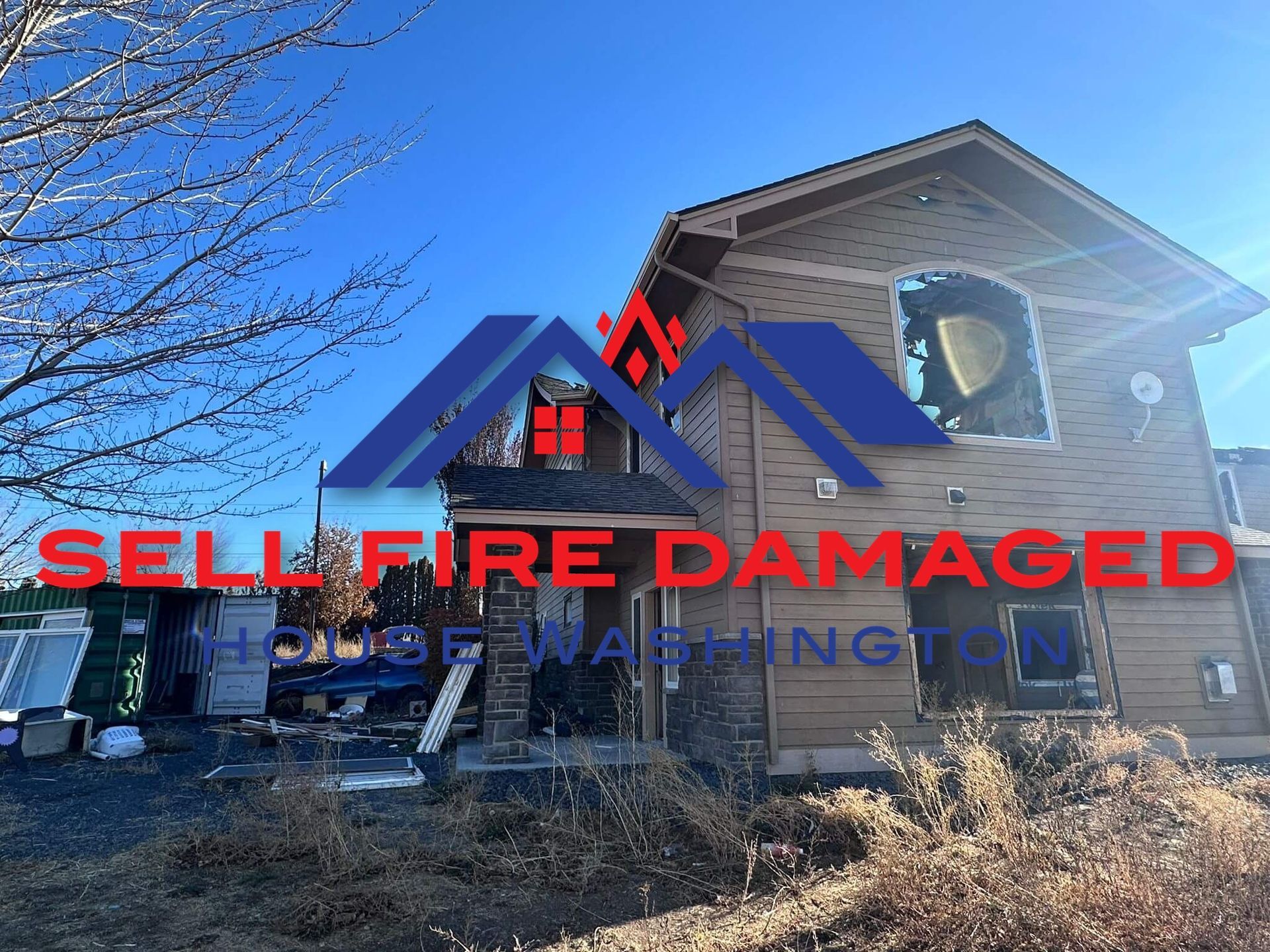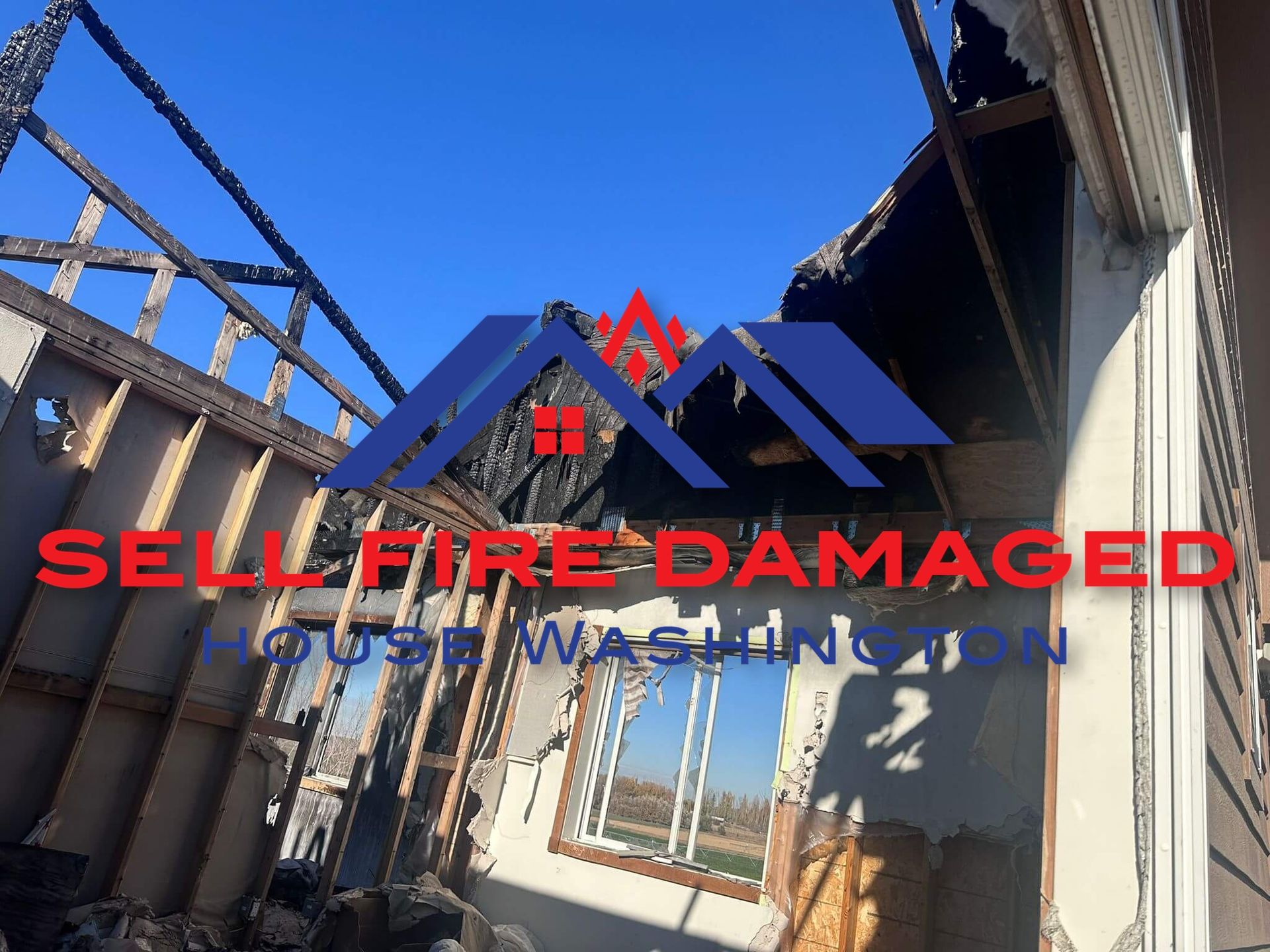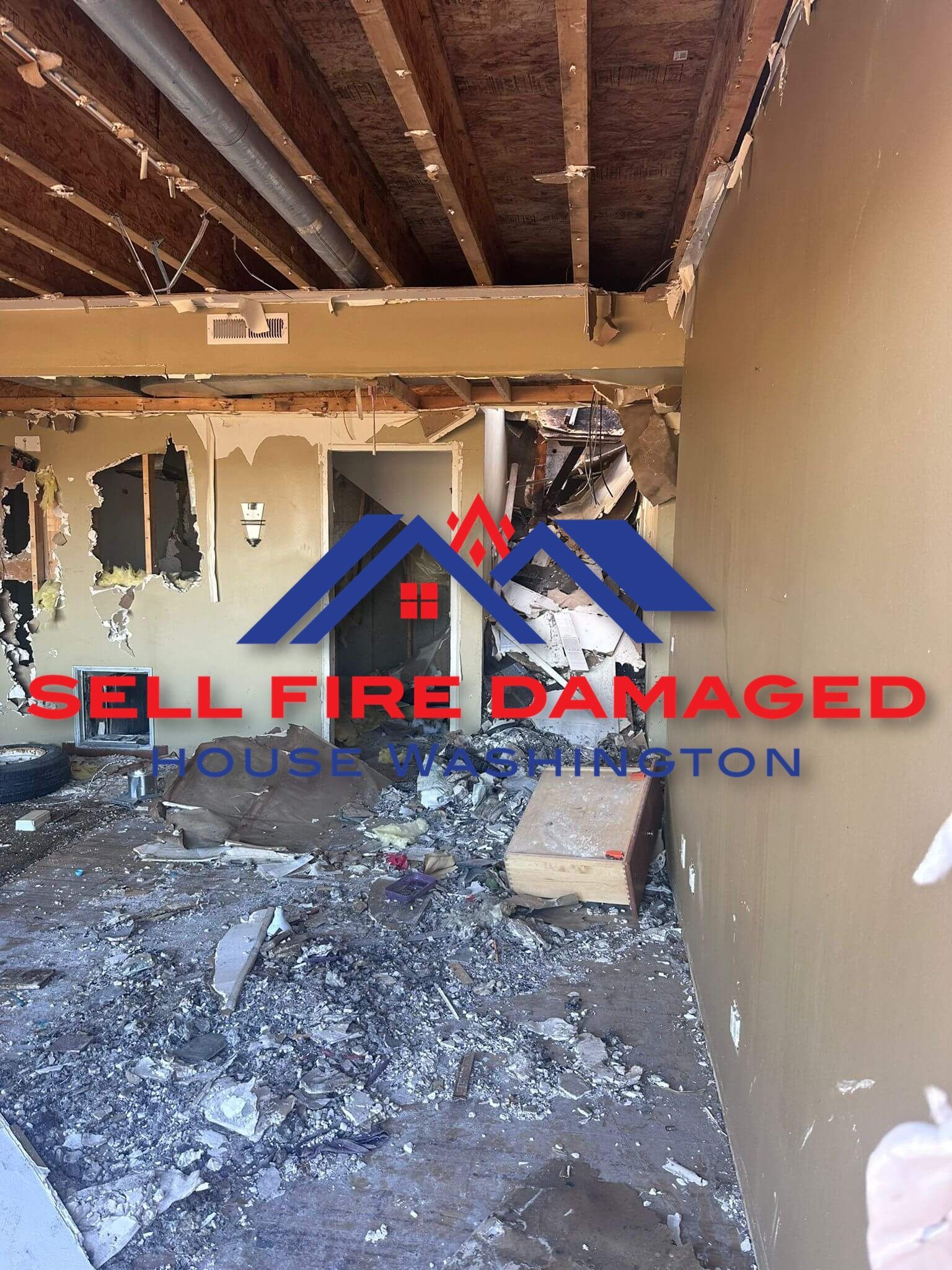House Fire Victim Assistance In Washington: Recovery Guide
Published on December 22nd, 2024
Lucas Sanders
AUTHOR
Free Offer Form
House Victim Fire Assistance In Washington: Local, Non-profit and Federal Sources
After experiencing a house fire, there are several organizations you can approach for aid.
You can get support from the federal government, local and state agencies, and emergency assistance organizations like the Salvation Army for fire disaster recovery.
This brief guide will discuss the different sources of aid available to you and your family after your home burns down.
Understanding House Fire Victim Assistance In Washington
After a house fire, knowing what to do next can be tough. Fortunately, several organizations are ready to assist you.
This section will define relief aid for house fire victims.
What is House Fire Victim Assistance?
This refers to the immediate assistance offered to families facing urgent needs due to such incidents.
It's about providing essentials—food, toilet paper, clothing, essential items, temporary rental assistance, and more—that are crucial during a crisis.
The government or various NGOs may offer a range of programs and support.
This support network stands a phone call away to help the victims of house fires regain stability.
This aid refers to help and resources offered by people and groups to support families who've recently experienced a house fire.
Importance of Receiving Assistance After House Fire
There are many reasons to seek aid or support.
Financial aid covers repair costs, housing aid gives displaced families a place to stay, and you'll need essentials like food and clothing. Finally, emotional support helps manage stress.
The aftermath of a fire isn't just about rebuilding your home but your life.
Receiving aid after a house fire makes navigating the aftermath easier.
With the different systems in place, house fire victims will know what to do next to gain back everything they've lost.
The Role of Disaster Relief Organizations in Fire Victim Assistance
Disaster relief organizations quickly help house fire victims with temporary shelter and supplies like paper towels.
They typically work closely with community leaders or a state agency to identify and prioritize humanitarian needs like rescuing and treating victims and providing their basic needs until they are rehabilitated.
These organizations can provide immediate post-disaster financial aid and long-term household support.
They also actively engage in insurance matters, legal aid and advocacy, and emotional and psychological support.
They connect disaster victims with public and private individuals through fundraising, donation drives, etc.
Disaster Assistance Organizations In Washington
In disaster relief, non-profit or government-funded organizations act as crucial lifelines for disaster-affected individuals — be it flood, fire, or other weather-related calamities.
They promptly step in as first responders to provide essentials like food, water, shelter or temporary housing, and medical care.
Helping disaster victims is the common goal of these organizations.
FEMA's Role in Providing House Fire Victim Assistance
The Federal Emergency Management Agency is a well-known disaster relief organization in the U.S.
This federal agency leads national efforts to prepare for, respond to, and recover from natural disasters and emergencies.
Some forms of FEMA's federal assistance are free, while others may come as loans.
For example, FEMA's Individuals and Households Program (IHP) offers financial aid to help with temporary housing, essential home repairs, or other disaster-related expenses.
Here are the types of help FEMA can provide:
- Housing Support: Money for rental assistance or temporary shelter.
- Repair: Funds for homeowners to fix damages not covered by their home insurance provider.
- Replacement: In rare cases, limited funds are needed to replace a destroyed family shelter.
- Hazard Mitigation: Funds to help eligible homeowners repair or rebuild their homes.
- Other Needs: Money for important needs like medical, funeral, transportation, and other underinsured required costs. You might need to apply for a loan before getting certain help.
NOTE: Residents with unmet needs can call FEMA after contacting their insurance agent. You can file and review your claim online at fema.gov.
The Salvation Army's Assistance Services for Fire Victims
The Salvation Army is also quick to respond during a fire emergency situation.
The Disaster Relief Services of the Salvation Army center around 7 core services, which may be adapted to meet the significant needs of a family or someone whose house burned down.
- Training for effective emergency response.
- Mobile feeding units for meals during emergencies.
- Emotional and spiritual support for struggling family members.
- Emergency communications through SATERN.
- Disaster social support.
- Responsible donations management from friends who want to help.
- Adaptable recovery programming for long-term support.
For direct assistance, use the interactive map on the Salvation Army website or call 1-800-SAL-ARMY. Enter your ZIP code to find nearby locations and help.
Additional Assistance Organizations
From hot meals and snacks for rescue teams to meeting your most serious needs — food, clothing, shelter, and medical care — these organizations can help.
1. American Red Cross
The renowned non-profit Red Cross delivers natural disaster relief globally and in the United States.
They provide vital aid—food, water, shelter, emotional support, financial, and direct assistance—to house fire victims.
2. United Way
Driven by its vision, United Way aims to equip communities to prepare, withstand, and recover when a disaster hits.
They connect people to vital resources like a primary residence, emergency food, medical aid, soot clean-up, and access to government programs.
3. Fire District Programs
Local fire departments do more than fight fires — they help after, too.
They also offer programs that provide extra resources, safety tips, insurance guidance, local connections, and community events.
Contact your local fire district office or visit their website to access these services.
Types of Assistance Available to Fire Victims In Washington

From emergency needs to long-term support, many kinds of aid are available to fire victims.
Some organizations help specific places or people, while others concentrate on different kinds of help, like caring for health or providing emotional support.
Financial Assistance
One avenue of aid available to fire victims is financial assistance. This can help them replace and restore any property damaged by the fire.
Many homeowners with fire insurance may need help coping with post-fire insurance settlements, but they can approach a public adjuster for help.
Fire insurance offers two types of coverage: replacement cost and actual cash value (ACV).
While many homeowners' policies include fire coverage, some seek extra protection. Organizations like FEMA and the American Red Cross can provide financial assistance or loans to cover these costs.
Housing Assistance
FEMA and other organizations can help fire victims who are restarting after a house fire by covering repair costs or providing temporary housing assistance.
FEMA can help homeowners and renters with expenses not covered by insurance, even if you are insured. File an insurance claim and provide the settlement or denial letter to FEMA for eligibility assessment.
Organizations like the Red Cross, Salvation Army, and local fire districts can offer guidance on cleaning your living space post-fire, often included in their fire prevention seminars or accessible on their websites.
Legal Help and Advocacy
In case of disputes with your insurance company, legal help is available.
Free legal aid from volunteer lawyers includes securing government benefits, insurance claims, home repair, will replacements, mortgage foreclosure, and addressing other further damage.
You can contact the helpline for legal services at (888) 382-3406, a partnership between FEMA and the American Bar Association Young Lawyers Division offering multilingual support.
Emotional and Psychological Support
If you're struggling to cope with the aftermath of a major disaster, the 24/7 Disaster Distress Helpline can be reached at 1-800-985-5990 in multiple languages.
The American Psychological Association's federally funded helpline assures immediate emotional and psychological help is available for those affected by a natural or human-created disaster.
The Salvation Army and your local Red Cross can also help you learn how to handle tragedy and trauma.
How to Access Assistance After a House Fire In Washington
After a disaster strikes, knowing how to access aid is vital.
Here is information about registering and applying for help, what to do if aid is denied, and how to get local support following house fires or other disasters.
Registration and Application Process for Disaster Relief
Begin by reaching out to the appropriate agencies in your region.
This might involve government agencies like FEMA, local emergency offices, and non-profit organizations like the Red Cross or Salvation Army.
To find help for your immediate needs, visit disasterassistance.gov to get a list of the closest FEMA Disaster Recovery Centers (DRCs).
If no resource is close to you, contact your state’s emergency management agency to ask about other resources or to get your district’s contacts.
Registering and applying for relief involves sharing information, documents, and details about damages.
What to Do if You're Denied Assistance
You have to appeal the denial. This might mean sending a letter to your insurance company or to FEMA, where you explain why you think they should approve your claim.
You can also talk to your local Red Cross or other groups that help after a disaster strikes. They may be able to help you if FEMA can't.
Your state or local government may also have programs that provide help.
If you also think your home's fire damage should be covered by insurance but it's denied, an insurance dispute attorney can help you confirm and guide your next steps to get the coverage you deserve.
Local Methods for Accessing Assistance
When a disaster like a fire strikes, local sources of help become crucial.
This can include local government offices, community centers, and places of worship that provide immediate aid to house fire victims.
They can offer information about the available help and guide victims.
In short, local methods for accessing relief can be accessed through community groups and the local government.
Case Studies and Survivors' Experiences In Washington
These stories show the help you can get when organizations and communities come together.
Success Stories of Fire Victims Helped
Below are success stories from different house fire victims:
“Their (FEMA) sole purpose is to help people like us. They’ll help you from typing your name in until the end, which is unbelievable.”
—Liu
"I was severely burned three times in total. Thanks to the amazing firefighters, nurses, and volunteers I grew as an individual and became a success story."
—Michella Grippo
“When the Red Cross came, they helped us out with some toiletries and gave me money that same night."
—Cody
Lessons Learned from Past Incidents
People have been motivated to volunteer and maintain fire safety as a priority by learning from previous fire accidents.
These events highlight how important fire prevention and readiness are.
“And I remember people coming to talk to my parents after the fact (house fire)—and later learned that it was the Red Cross . . . I see them wanting to make that difference in the world—and they’re doing that in their work with the Red Cross. That’s why I joined.”
—Sherri Odell
“I think it is important for everyone to have a smoke alarm . . . You should have one no matter where you live.”
—Crystal

Frequently Asked Questions
Read this section for further details about relief aid for house fire victims.
What Kind of Help Can I Receive After a House Fire?
In the first few hours after a tragedy, some appropriate actions post-fire incident include leaving the area and getting help from friends with extinguishing the flames.
Once everyone is safely accounted for, look for essential services like information, food, safety, medical support, and safe shelter — away from the smoke.
After a fire, organizations can focus on giving you practical things and ensuring you have enough support in this difficult time.
How Do I Apply for Assistance Through FEMA?
Here's how to do it in five simple steps:
- Start by calling 1-800-621-FEMA (3362) or visiting the FEMA website to apply.
- Provide information about your income, insurance, and the extent of the damage. Get an application number for reference.
- An inspector will assist the family that has had their house burned down and check if they qualify for FEMA’s households program or another specific service.
- Confirm eligibility.
- If you meet the requirements, FEMA offers financial support via check or direct deposit, with further instructions in a separate letter.
How Long Does It Take To Receive Assistance?
Immediate emergency assistance, such as food, shelter or temporary housing, and clothing, is provided just a few hours after the disaster strikes.
However, more comprehensive aid, such as financial assistance, housing support, and rebuilding efforts, might take longer to process and distribute.
The time frame varies based on the organization and the extent of the disaster, but efforts are made to provide timely relief.
What Should I Do if My Disaster Assistance Application Is Denied?
In case your application is denied, you can appeal the decision. This applies not just to any FEMA decision but also to other organizations.
Here's how to address a denied application:
- Review the denial letter and follow appeal instructions.
- Contact the agency to express disagreement.
- Resubmit the required documents.
- Consider professional help for more complex appeals.
- Explore alternative options if needed.
Are There Local Organizations That Can Provide Assistance After a House Fire?
Yes. Besides the American Red Cross, United Way, and Fire District Aid, numerous local organizations can assist with a house fire.
This involves community centers, non-profits, and religious groups (like the Salvation Army) often working together to aid house fire victims.
However, your local community services or government agencies lead in contacting fire victims and providing immediate assistance.
Conclusion
The path to recovery and renewal after a house fire can seem formidable, as the emotional toll of house fires often outweighs material loss.
But no one's alone on this journey. Many organizations like the American Red Cross, FEMA, and Salvation Army are there to help.
As an individual, you can donate money, make care packages, or offer additional resources to support your loved ones, friends, and families.


